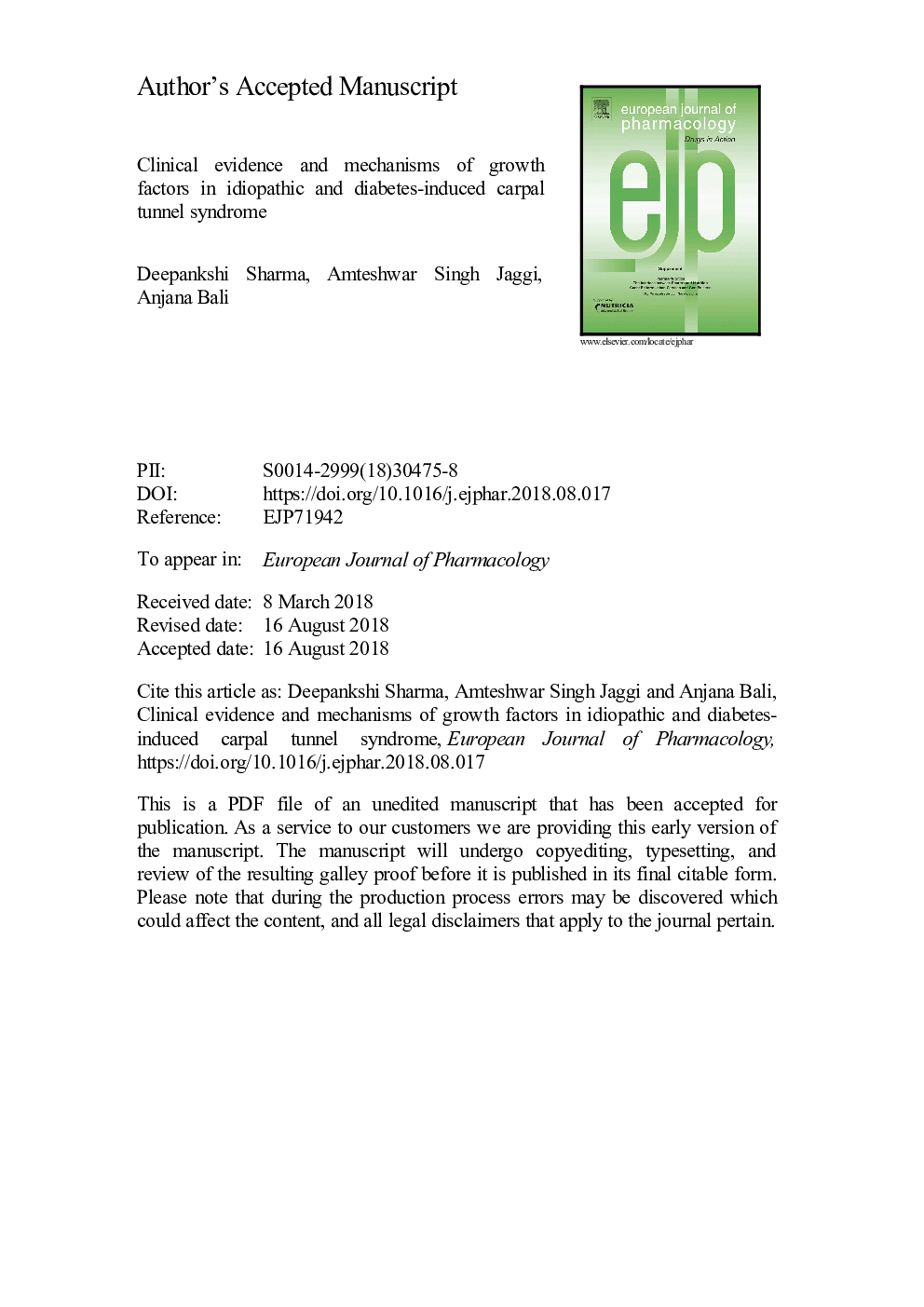| Article ID | Journal | Published Year | Pages | File Type |
|---|---|---|---|---|
| 10143279 | European Journal of Pharmacology | 2018 | 33 Pages |
Abstract
Carpal tunnel syndrome (CTS) is an entrapment neuropathy caused by compression and irritation of the median nerve, which travels through the carpal tunnel in the wrist. Increased fibrosis is a hallmark of the development and pathology of CTS. Different growth factors have been demonstrated to play a potential role in the development of CTS. Studies have described an increase in the expression of growth factors, including Transforming Growth Factor (TGF-β), Vascular Endothelial Growth Factor (VEGF) and interleukins (growth factors for immune and inflammatory cells) in SSCT (sub-synovial connective tissue) in CTS patients. Additionally, SSCT fibrosis is also marked by increased activation of canonical TGF-β second messenger Smads, increased expression of downstream fibrotic mediators such as connective tissue growth factor (CTGF), increased production of collagen type I, II, III and IV, and decreased expression of matrix metalloproteinases. Anti-fibrotic such as anti-TGF treatment may prove beneficial in idiopathic patients, however, anti VEGF therapy can be successful in the diabetic CTS patients. The present review describes the clinical evidence stating the role of different growth factors in the development of fibrosis in idiopathic and diabetes induced CTS.
Related Topics
Life Sciences
Neuroscience
Cellular and Molecular Neuroscience
Authors
Deepankshi Sharma, Amteshwar Singh Jaggi, Anjana Bali,
